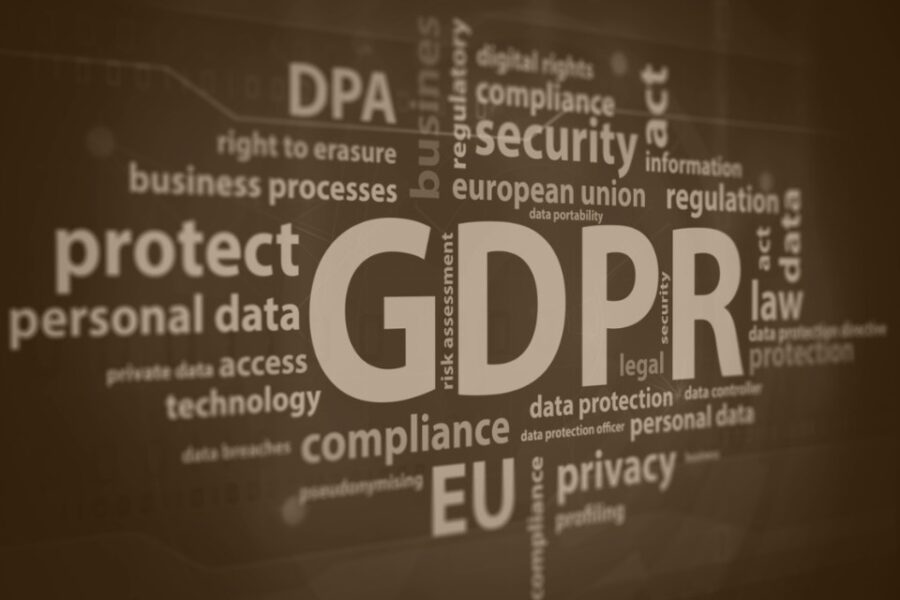Introduction:
Welcome to the official blog of the Law Offices of Kr. Vivek Tanwar Advocate and Associates, where we are dedicated to providing litigation support services for matters related to Data Protection and Privacy Laws. In today’s blog post, we aim to shed light on the prevailing issues surrounding Data Protection and Privacy Laws, the legal framework in place for their protection, and the steps we can take as a society to combat these acts. Join us as we explore this critical subject and empower you with the knowledge to protect your rights and safety.
What Are Data Protection and Privacy Laws?
In today’s digital age, the collection, processing, and utilization of personal data have become integral to the operations of businesses and organizations across various sectors. To protect individuals’ privacy rights and address the potential misuse of personal data, governments and regulatory bodies have implemented robust data protection and privacy laws. Recent years have seen considerable advancements in data protection and privacy legislation, with the General Data Protection Regulation (GDPR) of the European Union acting as a notable example. Let’s explore how data protection and privacy regulations are changing and what it means for both businesses and people.
Understanding Data Protection and Privacy Laws:
Data protection and privacy laws are legal frameworks that aim to safeguard an individual’s personal data and establish rules for its collection, storage, processing, and transfer. These laws provide individuals with greater control over their personal information and impose obligations on organizations to handle data responsibly and transparently.
The European Union’s General Data Protection Regulation (GDPR):
The GDPR, which went into effect in May 2018, has had a fundamental influence on data protection all around the world. If an organisation processes the personal data of EU citizens, it must comply with the law. This includes organisations both inside and outside the EU. Businesses all over the world are now required to adhere to GDPR standards in order to avoid fines due to their extraterritorial reach.
- Consent and Lawful Processing: The GDPR makes it mandatory to obtain valid consent before processing any personal data. It requires businesses to get express, freely given consent by outlining the reason for and procedures for data processing. Granular, precise, and revocable consent is required. Businesses must make sure that their consent procedures meet these specifications.
- Individual Rights: The GDPR gives individuals greater control over their personal data. These include the right to data portability, the right to be forgotten, and the right to access, amend, and erase personal data. People have more control over how organisations gather, use, and share their data.
- Data Breach Notification: The GDPR imposed strict requirements for data breach notification. Within 72 hours of becoming aware of a data breach, organisations are expected to notify the appropriate supervisory authority and, in some situations, the affected individuals. Fines for noncompliance may be very high.
- Accountability and Data Protection Impact Assessments: The GDPR emphasizes accountability and requires organizations to implement appropriate technical and organizational measures to protect data. It also introduces Data Protection Impact Assessments (DPIAs) to assess the potential impact on individuals’ privacy rights.
- Increased Penalties: In order to punish violators of data protection legislation, data protection authorities now have the authority to use harsh sanctions. Up to €20 million in fines or 4% of the global yearly turnover are permitted under the GDPR, whichever is larger. Organisations have been forced to prioritise data protection and make significant investments in compliance procedures as a result.
Impact on Businesses and Individuals:
- Enhanced Privacy Rights: Data protection and privacy laws like the GDPR empower individuals by giving them more control over their personal data. They have the right to know how their data is used, request its deletion, and prevent unauthorized access or sharing.
- Compliance Obligations for Businesses: The GDPR imposes significant obligations on organizations, including the need to implement privacy-by-design principles, appoint data protection officers (DPOs) and conduct regular data protection audits. Non-compliance can result in substantial fines.
- Global Impact: The GDPR has an impact outside of the EU, encouraging other nations to strengthen their data protection regulations. To increase individual data protection rights, nations including Brazil, California (USA), and Japan have passed similar legislation or amended their current laws.
- Data Governance and Security Measures: Organizations must adopt robust data governance frameworks, implement stringent security measures, and provide adequate training to employees to ensure compliance with data protection laws.
Conclusion:
Data protection and privacy laws, exemplified by the GDPR, are a response to the growing concerns surrounding personal data handling in the digital era. These regulations have transformed the way businesses handle data and provided individuals with greater control over their personal information. Compliance with data protection laws is vital for businesses to build trust, maintain customer loyalty, and avoid significant financial and reputational risks. As the landscape continues to evolve, organizations and individuals must stay informed about emerging regulations and best practices to ensure the responsible and secure use of personal data in the digital ecosystem.
We are a law firm in the name and style of Law Offices of Kr. Vivek Tanwar Advocate and Associates at Gurugram and Rewari. We are providing litigation support services for matters related to Data Protection and Privacy Laws.


Their health awareness campaigns are so informative.
where to buy generic lisinopril without a prescription
Trusted by patients from all corners of the world.
A true champion for patients around the world.
fluoxetine medication
I’m always informed about potential medication interactions.
The best place for health consultations.
can i buy lisinopril without a prescription
Their international partnerships enhance patient care.
Their loyalty points system offers great savings.
where to buy cheap cipro price
Trusted by patients from all corners of the world.